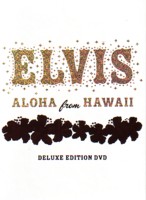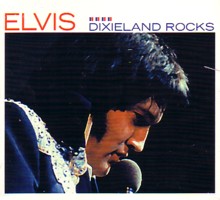.......Demystifying and explaining truth in the Elvis world.......
Patrick Lacy's book, Elvis Decoded, brings together many of the myths and misinformation which has characterised the Elvis world since Elvis' death in August 1977. In this interview with EIN the author tells us how he went about his research, why he had to leave out various pieces of information, and addresses a wide range of controversial issues including (the):
It is EIN's opinion that anyone wanting to make an effective and informed judgment on the raft of theories, myths and misinformation in the Elvis world needs to seriously consider the more than 10 years of research Patrick undertook in writing Elvis Decoded. Join EIN as Patrick takes us on a fascinating journey behind the facade of an unusual, but potent, part of the Elvis World mosaic. |
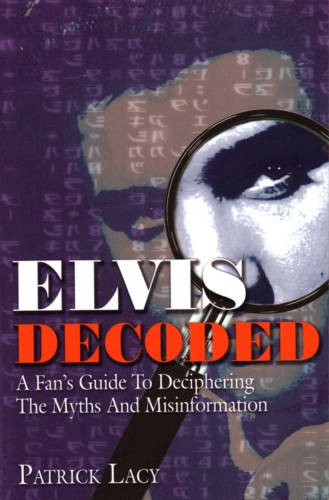 |
PL: Thanks. I’m glad to talk with EIN…always a pleasure.
EIN: Firstly, tell us a little about the Patrick Lacy story.
PL: I became an Elvis fan in 1994, and started, as most fans do, reading and watching just about anything I could get my hands on...books, documentaries, concert footage, etc. During this early-fan stage, I began noticing that a lot of the Elvis information out there is not consistent, and that’s where Elvis Decoded started.
EIN: How did you become interested in the raft of Elvis conspiracy stories and areas of misinformation that have grown up around Elvis since his death in 1977?
PL: As a fan, you want to be able to sit down and read a book, and have a fair amount of confidence that what you are reading is true. With many Elvis books, though, you will find misinformation, disinformation, missing information, inconsistent facts/accounts, and the like. When it comes to the death hoax theories, for example, I approached that area of research with an open mind and figured that since so many people seem to buy into the theories, perhaps there is *something* there.
However, after years of breaking down these various hoax-related topics and claims, I found that there is nothing to support any of the death hoax theories, and to this day I fail to see why these claims are believed, and perpetuated, with no critical analysis. I think what interests me about these topics is how uninformed the people making the pro-hoax claims really are, and how easily many fans are taken in by the assorted allegations.
EIN: You have spent more than a decade researching and writing Elvis Decoded. That really is a labor of love. What were some of the highlights of that process?
PL: Working on the cause of death research was a high point because it was so challenging. I also enjoyed analyzing Elvis’s will (or, rather, the claims surrounding it), because that has been such a gray area over the years, with no strong evidence either way. I found it intriguing that several people made claims that Elvis had left them something in his will, but then when the will was probated, none of those bequests was there.
I simply don’t believe that people would lie about this, in part because they took no legal action. In this day and age, we hear all sorts of stories about celebrity wills and challenges to those wills, or challenges to a deceased person’s estate. But with Elvis’s will, the people who claim to have been included just accepted that they weren’t included, and left it at that. So it just seemed to me that there had to be something about the will that wasn’t right.
EIN: What was your biggest breakthrough or finding?
PL: I believe my argument against the Codeine vs. Dilaudid theory postulated in “The Death of Elvis” is an important piece of the puzzle, and adequately refutes a theory that, in my opinion, doesn’t stand up. I also believe the handwriting question pertaining to the will is important, and was an angle I had never heard prior to my research and analysis.
EIN: What were some of the frustrations along the way?
PL: There are a handful of people in Elvis World who want to keep their information to themselves, and to some extent then they are not willing to talk about much. There are also many people who are suspicious of critical questions, like many that I’ve asked over the years. If you write to some people about Elvis’s record sales, and favorite foods, and favorite vacation spots, sure, they are willing to talk. But ask about anything critical and serious, and they figure you must be up to no good.
Over the past 10 years or so, I’ve been accused of being an attorney (secretly investigating on behalf of a client), a Private Investigator (secretly investigating on behalf of a client), an F.B.I. agent, a misinformation/disinformation agent working *for* Elvis Presley Enterprises, and a misinformation/disinformation agent working *against* Elvis Presley Enterprises.
The lack of trust in Elvis World makes for a long list of frustrating roadblocks.
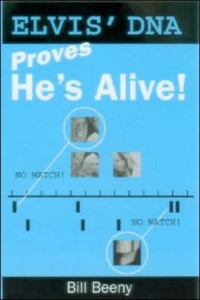 |
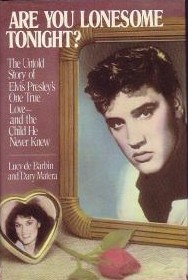 |
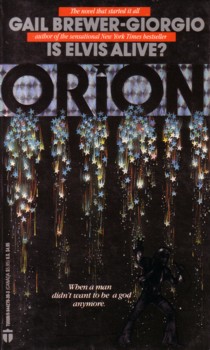 |
EIN: The breadth and logical discussion of material in Elvis Decoded will impress many. Have you always been an avid researcher?
PL: Yes, I have approached these topics with a critical/logical frame of mind since the day I started this work, and have approached other research projects in a similar manner.
EIN: After more than 10 years of researching the area you must have amassed an amazing volume of material. How much of your research did you have to leave out of Elvis Decoded?
PL: I have amassed a huge volume of material on the various scams and strange stories in Elvis World (Miller, Johansen, Beeny, et al), but I decided to leave out a large portion of the research product for several reasons. What I include in the book is enough to make my case, and to provide ample evidence and/or analysis to argue against the claims these folks have made.
For example, on the Sari Johansen topic, I had about 80 pages ready to go, but I decided to stick with just the crux of my argument against her claims, which amounts to 2 pages. The other material is very interesting and is important to the entire Johansen story, so maybe I will include more of that down the road as part of future research projects.
On the Elvis topics, I left out some material that simply didn’t fit, since I wanted to keep the book to a certain number of pages. As I continue with this type of research, though, I may include these topics in future projects.
EIN: What issues would you have particularly liked to include or discuss in more detail?
PL: Most topics that I wanted to include, I did include. There were parts of topics that I had to leave out, though. For example, I compared Billy Miller’s story with a story pertaining to Howard Hughes, and I found the similarities to be very interesting. (There may be no connection between the two stories, but they are similar enough to require a closer look.) However, the comparison is rather lengthy and I didn’t feel there was room for it in the book. As for a lengthier or more detailed discussion on some of the topics, I would have liked to have gone into more detail on Dick Grob’s book, as I feel there are many questions about his story that need to be further addressed. I still may pursue this in the future.
EIN: What are your personal favorite Elvis conspiracy stories or areas of misinformation?
PL: Well, I’m not sure “favorite” is the right word, but there are some topics that I find more interesting than others, in regards to the death hoax theories, and misinformation. The Donald Hinton story is fascinating to me if for no other reason that it is so absurd…how a doctor could fall for something like that. I am also very interested in the identity of the doctor who removed the tissue samples from Baptist Memorial Hospital for Bill Beeny, which is something I will continue working on.
EIN: What was the weirdest conspiracy story or area of misinformation you came across during your research?
PL: Because so many Elvis fans (myself included) are exposed to these strange stories so frequently, we become somewhat inured to them…like they are just par for the course. But if you step outside the Elvis community and look at things from a non-fan viewpoint, the Donald Hinton story is, without question, one of the most bizarre stories you will ever hear.
Think about it: licensed physician claims to be treating Elvis Presley (who supposedly died X number of years ago) even though the doctor never examines the patient in person. Instead, he sends drugs through the mail to treat this unidentified man, and in doing so violates so many ethical and legal boundaries that it boggles the mind. When I discuss this story with non-Elvis folks, they are stunned that anything this strange could happen, and that a doctor could be so…well, stupid.
EIN: The number of conspiracy theories and areas of misinformation around Elvis is staggering. It is far more than we have seen for other celebrities or notable public figures. What is it about Elvis that has resulted in such a high degree of speculation and misinformation?
PL: This question alone could be the foundation for a book. Part of the reason for so much misinformation about Elvis is fans’ hunger for anything new or interesting or compelling about Elvis. This desire for information results in people writing books to satisfy that hunger. Unfortunately, though, too often we see that the writers of these books are just throwing together very shoddy research and failing to look more closely at what they include in their writing, perhaps because so many inconsistencies and errors are overlooked or ignored.
EIN: There must also be a psychological issue at work in that so many people embrace the stories. Do you have a view on this?
PL: There was an article a few years back by Dr. Gary Enders, which I believe is linked at EIN. I would refer readers to this article, in regards to the question of psychological issues at play in Elvis World.
EIN: Since 1977 there has been a serial procession of theories and misinformed stories about Elvis. Do you think it will ever die down?
PL: I think we’d first have to figure out why these stories and theories have continued for so many years before we can figure out if they will die down or not. There is a possibility they will, given that so many primary sources of Elvis information are no longer available, and older fans are being replaced by newer fans. This question would require a lot of analysis.
EIN: The Elvis is alive theory is arguably the most enduring in the Elvis world. Why do you think this is? PL: People don’t want to let Elvis go, I think it can be reduced to that. I have found that a lot of the death hoax supporters are also apologists for Elvis, who promote the idea that Elvis did not have a drug problem, he had no personal faults, and he was pretty much a saint…or a perfect man. For example, a good number of these folks believe that Elvis’s slurring and incoherent ramblings on stage were an act…to portray himself as a drug addict, when in fact (according to them) Elvis was an undercover DEA agent and was faking his drug addiction. There is a degree of rationalizing here that borders on delusional, and I think many people who support the death hoax theory buy into this whole alternate Elvis…the clean-living, healthy, undercover agent out to save the world. |
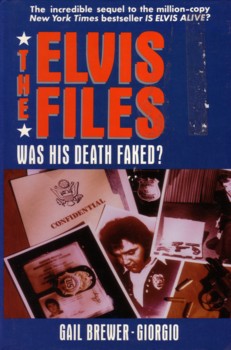 |
PL: First, I believe it is a logical fallacy to conclude that because EPE does not address a particular topic that they must be hiding something. In this situation, their silence is not an acceptance of the claim. Too many “believers” use this fallacy to conclude that EPE is hiding something, and it’s simply not accurate.
After Elvis Decoded came out, EPE was contacted about the phantom life insurance policy, and here is what they said:
“Elvis did apply for a $1 million life insurance policy in 1976, but he ended up not buying it. Some of the ‘Elvis is alive’ advocates apparently came across records of his application. What they failed to learn, or they have failed to mention, is that Elvis never actually made the purchase. There is no ‘uncashed’ life insurance policy.”
That should clear it up, right? However, what we also see quite often with these death hoax-related claims is that even if EPE does make a statement to refute a specific claim, the “believers” don’t believe it, anyway, and thus the issue remains unresolved. EPE is in a no-win situation here.
My point in Elvis Decoded, about this life insurance policy and other death hoax claims, is this: the people who make the claims are responsible for proving their claims. Simply, using this life insurance policy example, it is incumbent upon them to prove that Elvis still has an active insurance policy with Lloyds of London; it is not up to me or EPE or anyone else to prove that he doesn’t.
As with the entire death hoax theory, “believers” offer up plenty of conjecture and speculation, but they do not offer substantive evidence. It is my position that there is not one shred of evidence to prove or even suggest that Elvis faked his death. As I write in the book, I’d be more than glad to consider any such evidence…if it is compelling, I’ll take a closer look…I’ll even change my mind if the evidence leads me to conclude that Elvis faked his death. But I doubt that evidence will be forthcoming.
Looking a bit further at the insurance policy issue, we can also state with certainty that the death hoax theorists took a lot of license with the process they used in reaching the conclusion that Elvis has an un-cashed policy with Lloyds of London. If they located an application for the policy, as EPE suggests, how did they determine that the policy was, in fact, purchased? And, how did they determine that the policy is still active and/or un-cashed?
Since the policy never existed, it is quite clear that someone in the Elvis-faked-his-death camp simply made up the claim, since there was never any factual evidence to support it. The policy was not purchased, so no one could have found that the policy was/is active, or that it remains un-cashed. This is a perfect example of death hoax theorists reaching a conclusion that has no basis in fact, and shows us that they possess a suspicious inability to connect the dots.
EIN: What about claims that Elvis fled Memphis shortly after his alleged death in August 1977 using the alias Jon Burrows?
PL: This myth must include the additional claim that “Jon Burrows” took a flight to South America, which is always cited as part of the story. However, the truth is that there were no international flights to South America from the Memphis airport in August 1977.
Let’s go a step further and walk through this: Elvis fakes his death, and he goes to the airport and supposedly gets on a flight. He doesn’t use a disguise (since the claim is that he was seen and perhaps recognized as Elvis Presley), but merely uses an alias. Ignoring the obvious problems with such a fact pattern, let’s consider the question of who saw this man looking like Elvis Presley and using the name Jon Burrows.
When did this person come forward? Why did this person come forward? Why didn’t this person contact a local news organization that same day? Why was this claim not “mainstream” back then, or now? The “believers” are asking us to believe that someone saw Elvis Presley in the Memphis airport on the same day he was reported to have died, and he was using a fake name, and this eyewitness did nothing with the information until X years later, when the claim was uncovered by (surprise) the very people who believe the death was faked. I would challenge the people who buy into this story to produce the source of the claim.
EIN: Last year EIN published a detailed article exposing a seminal flaw in the Bill Beeny DNA claims. What is your take on the Beeny story?
PL: Bill Beeny’s DNA tests mean nothing because the tissue samples left the secure, controlled environment of Baptist Memorial Hospital in the hands of someone who was not authorized to have them.
Phil Aitcheson and Bill Beeny and their supporters can argue all they want that the chain of evidence was unbroken, but the simple fact of the matter is that the second the tissue samples left the hospital in the hands of the unnamed doctor, the chain of evidence (or chain of possession) was broken. When the doctor took the samples, he did so in an unofficial capacity, so when he possessed the samples outside the hospital, he was merely a private citizen; he had no authority to possess the samples, and the samples were held outside the hospital for unauthorized purposes.
Also, the doctor who removed the tissue samples is unnamed. This is a key point.
Finally, Beeny’s credibility is sorely lacking, and his knowledge of the death hoax theory is demonstrably skewed, as evidenced by his questions and analyses included in his book(s). It is quite clear that either he does not fully understand what he is talking about, or he is being willfully ignorant of the facts.
EIN: In summary, what do the official Elvis autopsy findings tell us?
PL: Since the autopsy report will likely never be released, this question may be purely academic, as the cause of Elvis’s death is so often a matter of belief, as opposed to fact. There will always be people who believe Elvis died of a simple cardiac problem, unrelated to his use of prescription medication, and there will always be people who believe he simply overdosed. If the autopsy report were to be released, I still don’t think it would change many fans’ minds, because so many fans will not accept a drug-related cause of death no matter what facts are presented.
EIN: The Forest Hill Cemetery break-in is a particularly interesting story and many fans will not be aware of the truth surrounding it. What did you discover about the break-in?
PL: I discovered that very few accounts of the break-in and the subsequent arrests are consistent, and there has been a lot of literary license taken in describing this incident. It is my opinion that the break-in (which didn’t actually happen) was nothing more than a few guys up to no good late on a Sunday night. I suspect this topic will be discussed further as Elvis Week 2007 gets closer, at which time I’ll be re-visiting my research on the incident.
EIN: You are known to be very critical of the claims of private investigator, Billy Miller. Please tell us your view on Billy.
PL: As August 2007 comes around, I may be addressing the Miller story in more detail.
In the meantime, though, I would just say that Miller’s story is formulated in a very strange manner, and I don’t believe that he understands what he is doing.
EIN: A number of reviewers have commented that your narrative is very critical of Dick Grob’s book, The Elvis Conspiracy. As a seasoned police professional how did Grob get it so wrong? PL: It is quite clear that any objective reading of Grob’s book will result in one crucial finding: Grob wrote the book as Elvis’s friend, not as an investigator. Professional police investigations (official or otherwise) are not based on wild, unsubstantiated theories, unreliable witnesses, non-existent witnesses, an obvious hatred of the “suspect,” and a bias that is so strong that the “investigation” turns out to be nothing more than a long-running personal commentary. For those readers who wonder why I didn’t take Grob’s “seasoned” police background into account when analyzing his claims, I would respectfully suggest they go back and look for some “seasoned” police work in Grob’s book, and then let me know what they find. The fact is, I did take into account Grob’s police background, and I found his investigative skills suspiciously absent. Again, the book is a defense of Elvis written by Elvis’s friend, and a hit-job on Ginger Alden written by Elvis’s friend. It is not an investigation by an impartial investigator. |
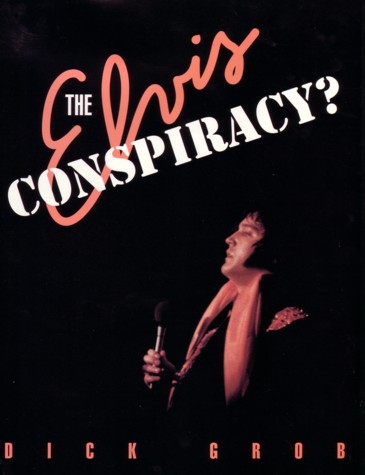 |
Further, it is my understanding that Grob worked security for Elvis, and he was previously a street cop. I’d be interested, then, in knowing why so many people consider him a “seasoned” investigator or “seasoned” police professional.
As to the specific question posed here, Grob got it so wrong because his only goals in writing the book were to paint Ginger Alden in the worst possible light, and to convince Elvis fans that Elvis was not addicted to prescription medication.
EIN: One of those little known gems in the Elvis story concerns a book by Harley Hatcher, Elvis Disguised: The John Crow Recordings. What can you tell us about this story?
PL: I read about this story many years ago and found absolutely no merit to it.
EIN: Patrick, you elected to thoroughly examine the Elvis Presley Jr. story but gave minimal discussion to the Lucy de Barbin claim of Elvis fathering her daughter, Desiree. EIN found this decision interesting as while the Elvis Presley Jr. story is contemporary it has gained little mainstream media coverage, while until the Elvis is alive stories, the de Barbin claim (and those of several others) achieved both significant mainstream and tabloid media coverage for over a year around the 10 th anniversary of Elvis’ death. How did you decide on what to discuss in detail and what not to?
PL: I’ve read the de Barbin book several times, and each time I have tried to find something worth investigating, or something that can be researched and analyzed based on facts. Unfortunately, the book is presented as more of a romance novel, where hard facts are missing, than as a biographical documentary-type sketch of the alleged relationship. Where there are dates and facts and figures and such, there is no way to verify any of it, because there are so few primary sources, and the information is so vague.
Conversely, the Elvis Jr. story can be broken down because this man cites his own facts and makes categorical claims that can be analyzed and then refuted. He also makes claims that can be argued based solely on their merit, i.e. whether they logically stand up on their own. In the de Barbin tale, there are barely any facts. Her story is one that must be accepted on faith, and as a researcher, I don’t think it’s wise to do that.
EIN: Recently, rights to the song, Just Like Rolling Up Hill, allegedly co-written by Elvis and Paul Terry King, sold on eBay for US$31,000.00. What is your view on Paul Terry King’s claim to have written two songs with Elvis in 1973?
PL: I wrote a fairly lengthy outline of my position on the Paul Terry King claims regarding authorship of the two songs in question. This analysis can be found on the Elvis Decoded webpage.
In a nutshell, King’s story doesn’t make much sense, and he and his associate use logical fallacies to support their claims. For example, they argue that because King’s name and Elvis Presley’s name are listed as co-writers on these two songs with BMI, logic dictates that these two men wrote the song together. But the reality is that any name can be listed as a co-writer on a song and BMI will do nothing. Only when there is legal action of some kind will the identity of the writers become an issue. King wants us to believe that Elvis’s name on the song registration means he (Elvis) co-wrote it, but that assertion is very misleading.
Looking a bit closer at this particular claim regarding the names registered with BMI, if BMI had to actually investigate and verify the listing of authorship, they would had to have contacted Elvis Presley about whether he co-wrote the song, right?
By King’s own admission, there was no one else present when this song was allegedly written by King and Elvis Presley, so Elvis would be the only other eyewitness. Could BMI have verified with Elvis that he wrote this song with King? No, because King registered the song many years after Elvis’s death. This proves to us that BMI does not verify the names that are submitted to them as co-authors of any given piece of work. Thus, the notion that Elvis’s name on the BMI registration proves he co-wrote the song is faulty.
Interestingly, King’s associate admits that they have no concrete evidence to link the two men, so why anyone would purchase the song with no evidence is a mystery to me.
P.S. It appears that the song is back on eBay, supposedly because the buyer did not follow the terms of the sale. I’ll be following up on this on the Elvis Decoded webpage.
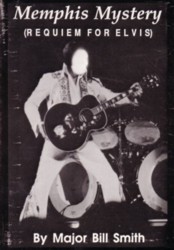
EIN: Given the sale price and controversy over the legitimacy of the song’s authorship, it appears there is still a lot of money to be made off the Elvis name?
PL: If there was someone so unwise as to drop $31,000 on that song, then you are right, there is a lot of money to be made off the Elvis name.
EIN: As you have said, there is a lot more you could have included in Elvis Decoded. Do you have any plans for a follow-up book?
PL: No, not at this time, though I will be continuing my research on several topics.
EIN: As the world’s foremost authority of Elvis conspiracy theories and misinformation in the Elvis story, do you have a feeling on what the next big conspiracy tale or issue of misinformation may be?
PL: If history is any guide, there will always be a new Elvis-related hoax or scam or bizarre story on the horizon. One or two may be fast-approaching, since this August will be such a key milestone.
EIN: Patrick, where can we all find out more about Elvis Decoded?
PL: The book on the publisher’s website is linked here:
And the Elvis Decoded webpage is here:
http://hometown.aol.com/elvisdecoded/newindex.html
EIN: Can interested fans also buy Elvis Decoded on your site?
PL: There is a link to the book on the webpage, and the book is also available through any online retailer (Amazon.com, BN.com, etc.). If fans have difficulty purchasing the book, they can contact me directly and I’d be glad to assist.
EIN: Is there anything else you would like to tell our readers about Elvis Decoded?
PL: As I’ve seen on the EIN website and in several e-mails sent to me, there are some people who do not fully understand what I have tried to do with this book, and some people who do not understand the format and the way I’ve examined the information. I would only ask that readers look closely at what I’ve written in the introduction, and to pay attention to exactly what I’ve said…it’s important for the context and content of the book to be understood.
EIN: Patrick it has been great talking to you. We know a lot of fans will find your views and research most interesting.
PL: Thanks, it’s been great talking with EIN.
Read EIN's review of Patrick Lacy's fascinating book, Elvis Decoded
Visit the Elvis Decoded webpage


